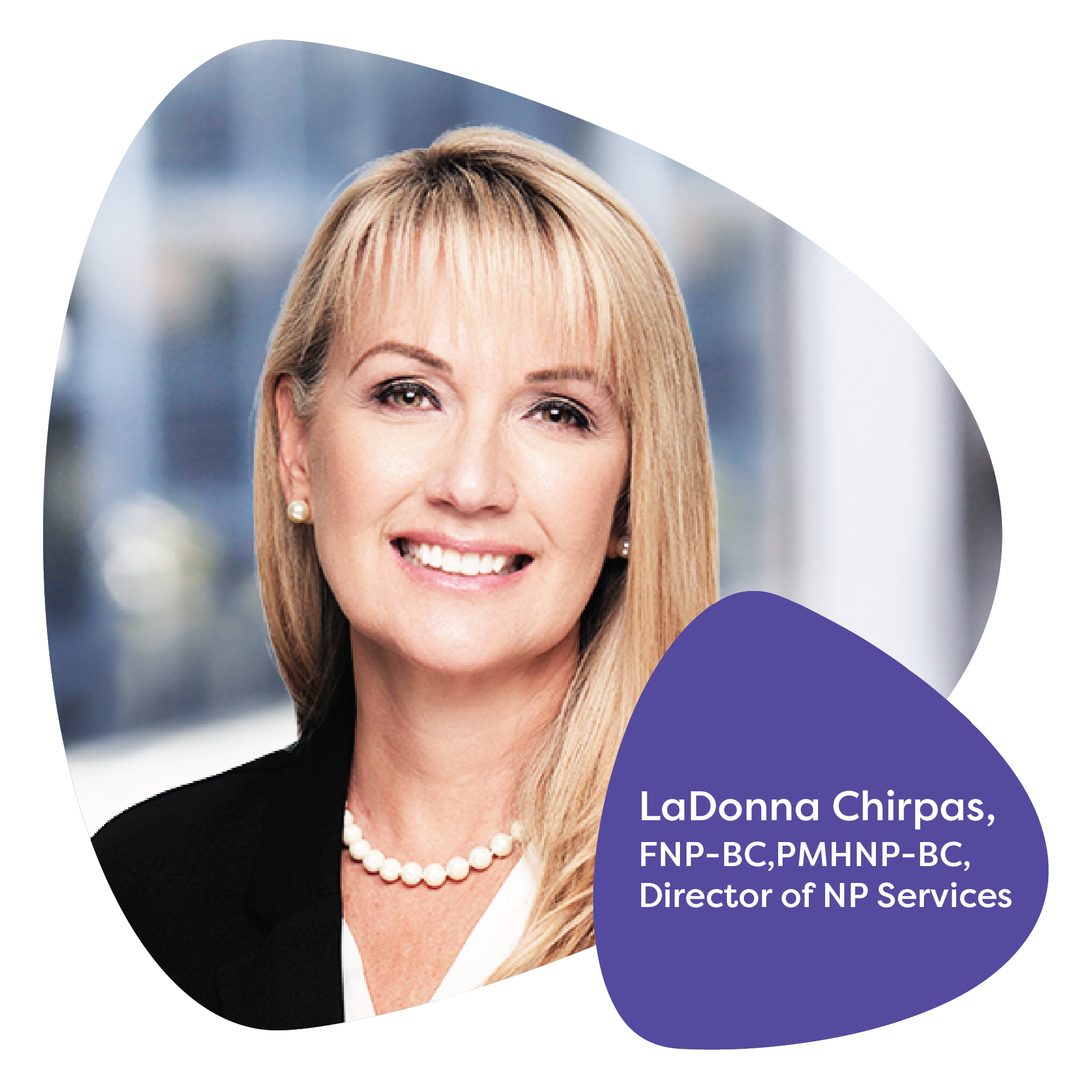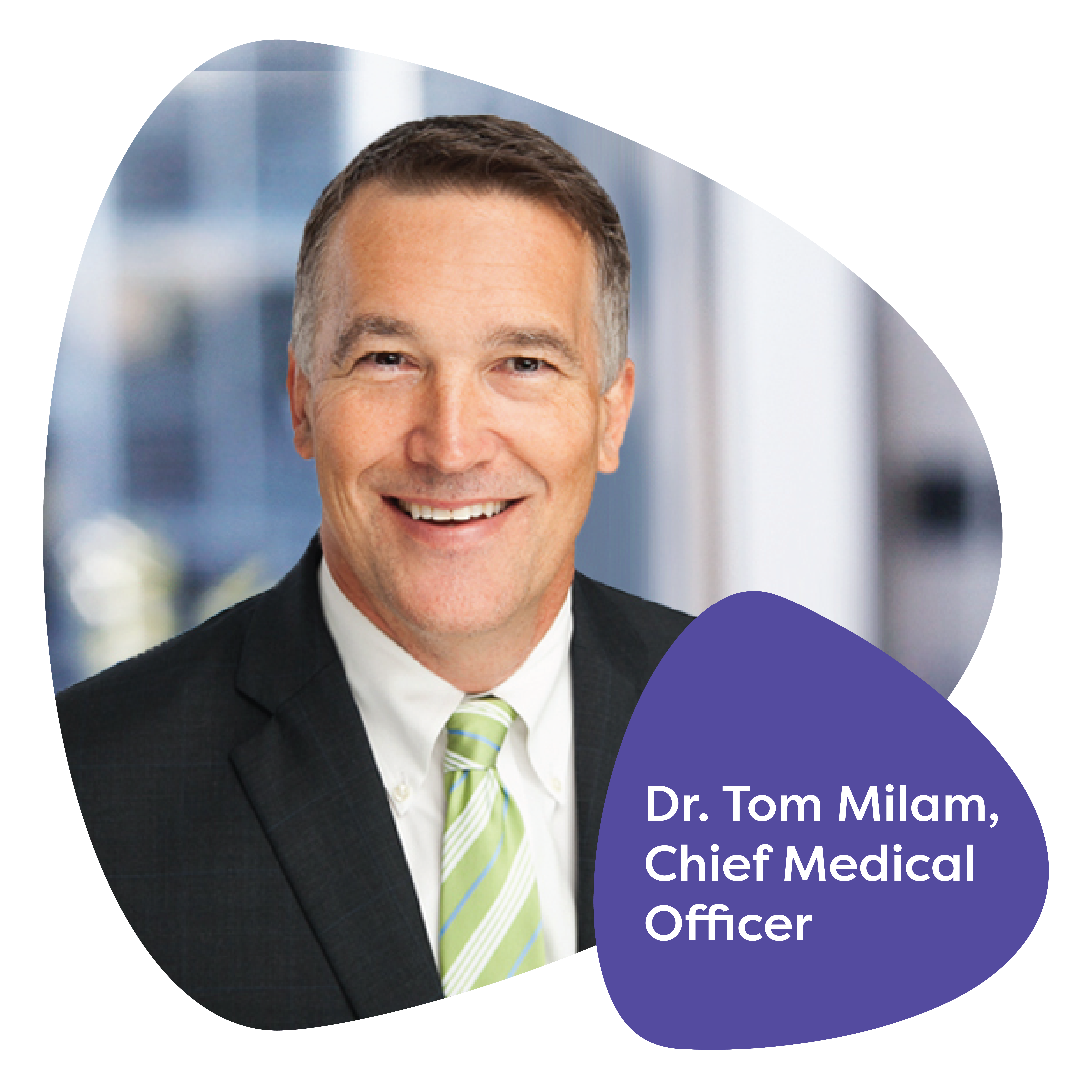Psychiatric Mental Health Nurse Practitioners (PMHNPs) make for exceptional members and leaders of care teams. Generally speaking, PMHNPs not only have very diverse educational backgrounds, but they undergo a variety of trainings and are experts in delivering effective behavioral health care.
I’ve seen the impact PMHNPs can make for healthcare organizations first-hand across my 20-year career as a PMHNP and from my experience serving as Iris Telehealth’s Lead Psychiatric Nurse Practitioner. Over those years, here are the best practices I’ve seen for how organizations can effectively leverage PMHNPs and some of the specific benefits their communities experience when they lean into PMHNPs.
How organizations can leverage PMHNPs for their behavioral health programs
At Iris, we work with organizations all across the country to support the various needs of their patients.
Here are some of the primary ways our partners leverage PMHNPs for behavioral health services:
- Telepsychiatry: Organizations in rural communities or those experiencing the effects of the provider shortage have found great success in leveraging PMHNPs via telepsychiatry. While PMHNPs tend to live on the East Coast, telepsychiatry makes their services widely available.
- Crisis intervention: PMHNPs are excellent at deescalating volatile situations. Once a situation is handled and the patient is triaged to an inpatient psychiatric unit, we provide follow-up care and execute quality improvement initiatives. We are excellent at keeping up with data and showing where our helps and enhances the overall effectiveness of our outcomes.
- Patient advocacy: Another area where PMHNPs excel is communication. Many of our patients feel PMHNPs can speak at their level. We’re nurses first and understand the importance of bedside manner. We carry that into our treatment, and patients feel they can communicate effectively with us.
- Medication management: A lot of organizations utilize PMHNPs for medication management because they have therapists who conduct therapy. While we always end up doing a bit of therapy, the largest part of our job is talking to patients, seeing what their symptoms are, and determining if medication is appropriate for them. We then write a prescription and follow-up every one to three months according to how well they’re doing and adjust as needed.
The role PMHNPs play in reducing mental health stigma
In independent practice states, our skills can be leveraged for leadership roles or providing community outreach, whether that’s teaching people about mental health stigma or helping them learn about their conditions before they escalate into something more severe.
For example, if a patient is worried about what people think about them getting treatment for their behavioral health condition, it might keep them from getting help. However, if an organization is leveraging a PMHNP for treatment, the PMHNP can explain how treating a behavioral health condition is just the same as treating diabetes or hypertension.
Everyone wants someone to talk to and there’s nothing wrong with that. When you remove the stigma, people get in earlier, and they’re less likely to escalate to a higher severity and can stay more stabilized throughout their life span.
The advantages of hiring a PMHNP
Part of our job is reaching out and communicating with primary care doctors because we often share patients. It’s important for us to let them know the patients we treat, so if they have anyone who needs behavioral health support, they can send them our way. This communication enables the best care for the patient.
That said, we are very integrated into the organization we serve, building relationships in the community and with the on-site team. This approach helps create the best experience possible for the patient and builds continuity of care.
On the other hand, if an organization is working with a Locums, someone who is in and out, behavioral health patients don’t tend to respond well. People don’t like to tell their stories over and over and they don’t feel comfortable knowing that someone is only going to be there for a short time.
However, they respond very well know that their PMHNP is “their person” and they can trust them because they’re a part of the team. By being integrated into the clinic, we become one of the employees there and we’re not going anywhere.
Why bedside manner and communication is a PMHNP’s superpower
People may not realize all the different aspects of what a PMHNP can provide. Nurse practitioners can do research, outreach, crisis intervention, and medication management. They can also work in both inpatient and outpatient settings and do step down roles. There are an endless number of jobs a nurse practitioner can do.
I would say our superpower, though, is our bedside manner. We meet people where they are. Whenever you meet a patient, you have to figure out how they communicate. Some people walk in and they’re joking – they want someone to be lighthearted, so they’re comfortable. But they also want you to be serious and provide medication management. However, if you’re really serious and to the point, they’re not going to trust you.
It’s important to learn about your patients and figure out what’s important to them. If someone mentions their family, it’s important to follow up with them the next time you see them. Ask how they’re doing. These are all important aspects of building a good relationship.
Building your team of PMHNPs at Iris
Over my 20 years as a PMHNP, I can say that at Iris, we have a wonderful set of nurse practitioners. We strive to have the highest quality providers around and we do a great job of finding the best of the best.
If you’d like to learn more about PMHNPs and the benefits they can bring to your organization, feel free to contact us today and see how we can find the best provider fit for your community.
You can also learn more about how PMHNPs can benefit your organization here.


